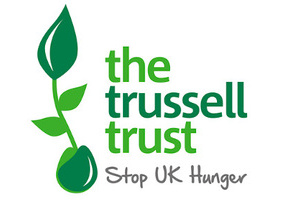Food bank charities in England, Scotland and Wales have reported increasing need for their services this year and have said they will have to reduce the support they provide if demand rises further.
An Independent Food Aid Network (IFAN) survey of its members found that nine-tenths of charities had seen an increase in need for their help from January to March 2023.
One in seven respondents said they had needed to reduce the size of parcels they offered to beneficiaries this year as a result of the increasing need.
Two-thirds said that they would need to reduce the level of support they provide if demand continued to increase, with a quarter saying they may have to turn people away.
Most food bank charities reported an increased need for long-term provision of their services.
They expressed concern over the number of employed people seeking support, suggesting inadequate wages had driven an increase in need.
Sanctions, rent increases, housing problems and Universal Credit waiting times were also listed as the reasons people needed their help.
‘Mentally exhausting’
Alison Peyton of Readifood in Reading said: “It can be mentally exhausting hearing over and over, like a broken record the same stories repeated over and over of how people are struggling, not coping and needing support from the charity.
“We also see how the mental wellbeing of our clients is suffering, so many of them struggling with mental health issues and as a team we have needed to face suicide attempts of clients”.
Mark Lister of Ledbury Food Bank in Herefordshire said: “The current rate of increase is unsustainable in the medium to long term. We are now opening for longer and have added an extra session. We are anticipating an increase in numbers of visitors in excess of 80% over the year.”
Charlotte White of Earlsfield Food Bank in south London said: “Sadly, we see no light at the end of the tunnel. We're in Spring now, when the numbers used to ease up a little, but our numbers going to go up and people's situations are getting much, much worse. We're now seeing the consequences of many problems including debt, anxiety, rent arrears, which have built up over an extremely tough winter.”
Angela Gee of Daventry Food Bank in Northamptonshire said: “We, as a food bank, were not set up to support this level of need and not for long term support. The cost-of-living crisis is affecting everyone on some level but for those who have little or none, the need is so big. We can't sustain long-term support for so many.”
The survey was based on data from 76 organisations running 120 independent food banks.
Related Articles












